https://www.fizzicseducation.com.au/wp-content/uploads/2022/12/Liquid-nitrogen-cloud-1920-x-200px-dark-blue-wash.jpg
Delving into food chemistry in a school workshop!
Learn how scientists test foods and why our healthy choices are important for our diet.
Designed for the 2021 National Science Week theme which is Food: Different by Design
- How do scientists test for different nutrients in food?
- Try your hand at testing food the way laboratory technicians do.
- Extract DNA from fruit
- How is food preserved and why don’t we notice some preservatives when we eat it?
- Making healthy choices in our diet
- … and more!
This fun science workshop makes food science visible and memorable.
NB: There is an option for liquid nitrogen ice-cream making however this is not essential.

Cross-curriculum
- OI.3. Sustainable patterns of living rely on the interdependence of healthy social, economic and ecological systems.
Science
- Solids, liquids and gases have different observable properties and behave in different ways (ACSSU077)
- Scientific knowledge is used to solve problems and inform personal and community decisions (ACSHE083)
- With guidance, pose clarifying questions and make predictions about scientific investigations (ACSIS231)
- Communicate ideas, explanations and processes using scientific representations in a variety of ways, including multi-modal texts (ACSIS093)
- Changes to materials can be reversible or irreversible (ACSSU095)
- Scientific knowledge is used to solve problems and inform personal and community decisions (ACSHE100)
- With guidance, pose clarifying questions and make predictions about scientific investigations (ACSIS232)
Health and Physical Education
- Recognise situations and opportunities to promote health, safety and wellbeing (ACPPS018)
- Identify and practise strategies to promote health, safety and wellbeing (ACPPS036)
- Plan and practice strategies to promote health, safety and wellbeing (ACPPS054)
Design & Technology
- Investigate how and why food and fibre are produced in managed environments and prepared to enable people to grow and be healthy (ACTDEK021)
- Investigate food and fibre production and food technologies used in modern and traditional societies (ACTDEK012)
NSW K – 10 Science Syllabus mapping for all our incursions
NSW Science Syllabus Content
A student:
- identifies that objects are made of materials that have observable properties (STe-4MW-ST)
- identifies how plants and animals are used for food and fibre products (ST1-5LW-T)
- identifies that materials can be changed or combined (ST1-6MW-S)
- describes how the properties of materials determine their use (ST1-7MW-T)
- investigates the suitability of natural and processed materials for a range of purposes (ST2-7MW-T)
- describes the characteristics and effects of common forms of energy, such as light and heat (ST2-8PW-ST)
- explains how food and fibre are produced sustainably in managed environments for health and nutrition (ST3-5LW-T)
- explains how the properties of materials determines their use for a range of purposes (ST3-7MW-T)
- explains how energy is transformed from one form to another (ST3-8PW-ST)
PDHPE K to 10
- proposes and implements actions and protective strategies that promote health, safety, wellbeing and physically active spaces (PD3-7)
Science and Technology K–6 Syllabus
(Implementation from 2027)
For explanatory points & implementation advice for each dot point, please visit the NESA Science and Technology K–6 Curriculum site
ST2-SCI-01
uses information to investigate the solar system and the effects of energy on living, physical and geological systems
ST2-PQU-01
poses questions to create fair tests that investigate the effects of energy on living things and physical systems
ST3-SCI-01
uses evidence to explain how scientific knowledge can be used to develop sustainable practices
ST3-PQU-01
poses questions to identify variables and conducts fair tests to gather data
NSW K – 10 Science Syllabus mapping for all our incursions
Print a PDF which details K to 6 mapping of all our science visits
Victorian Curriculum K to 10 Science
- People use science in their daily lives (VCSSU041)
- Objects are made of materials that have observable properties (VCSSU044)
- Everyday materials can be physically changed or combined with other materials in a variety of ways for particular purposes (VCSSU045)
- Science knowledge helps people to understand the effects of their actions (VCSSU056)
- Natural and processed materials have a range of physical properties; these properties can influence their use (VCSSU060)
- Scientific understandings, discoveries and inventions are used to inform personal and community decisions and to solve problems that directly affect people’s lives (VCSSU073)
- Solids, liquids and gases behave in different ways and have observable properties that help to classify them (VCSSU076)
- Changes to materials can be reversible, including melting, freezing, evaporating, or irreversible, including burning and rusting (VCSSU077)
- With guidance, pose questions to clarify practical problems or inform a scientific investigation, and predict what the findings of an investigation might be based on previous experiences or general rules (VCSIS082)
- Communicate ideas and processes using evidence to develop explanations of events and phenomena and to identify simple cause-and-effect relationships (VCSIS088)
Print a PDF which details P to 6 mapping of all our VIC science visits
Using a laboratory test for proteins with common kitchen ingredients
Fuel your body! Identify starch & thereby energy in common foods
Extract real DNA from fruit
Look at fibre in a different way & learn why you need it
How much sugar is packed into soft drink?
Use cabbage juice indicator to test foods
Its a chemical reaction...in your mouth!
OPTIONAL: Liquid Nitrogen Ice-cream Making
We make instant ice-cream! Either add 30 minutes to the workshop or we can include this in the 60 minute version by adjusting the program
Feedback on this incursion
Appropriate for Years K to 6 with a maximum of 30 students per science workshop.
Access to 1 electrical power socket and 6 to 8 tables
Chairs are not required
Duration 60 minutes, set up time 30 minutes and pack up time 30 minutes
We need 15 minutes to clean in-between shows
For us to provide the best possible learning experience, the materials used during the presentation may be varied to suit the conditions, length of workshop and the audience. Please chat with our presenter if there is a particular focus that you’d like us to cover.
During Social Distancing – Contact us
and we’ll tailor a program to suit both your school and the State’s social distancing requirements. Further details here
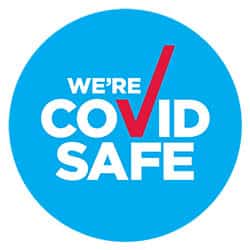
Go further – Complete Units of Work to support your teaching!
Hours of High-Quality videos, printable experiments, quizzes, vocabulary lists,
Scope & sequences, cross-curricular teaching ideas, marking rubrics & more
Save time & engage students in STEM
Find out more!
$495 GST Free for a 60 minutes workshop
or $540 GST Free for a 90-minute workshop for 30 students (includes ice-cream making).
OPTIONAL: If you want ice-cream making within the 60-minute workshop, the cost would be an additional $55 GST Free and we will need to change the number of activities presented to fit this in.

Find out about offers & discounts here!
In a regional area? Find out how we can attend your school as part of a country science tour!
Call 1300 856 828, or click below to make a booking for your primary school.
Print a PDF for mapping of all our K to 6 science visits
 Find out more here
Find out more here
Enquire Now
STEM TPL for Primary and Early Learning Teachers
Create a Full Day STEM Accelerator or join us for a rapid science upskill! For schools outside of metropolitan areas please contact us to discuss how this science workshop can be run online or visit your school as part of a regional visit.
Click below to know more!
Read More
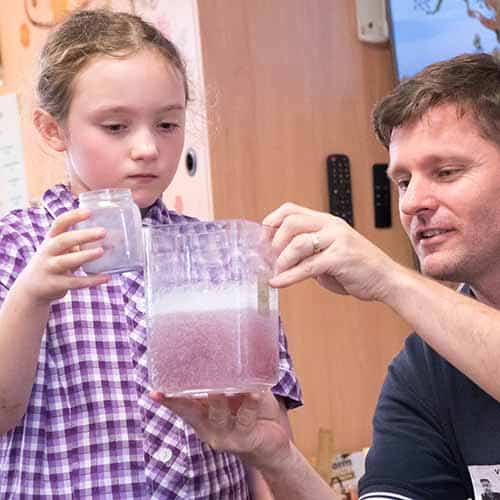















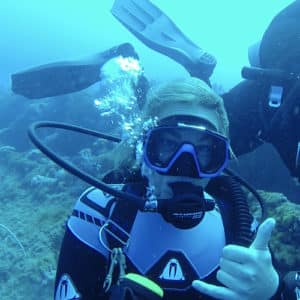
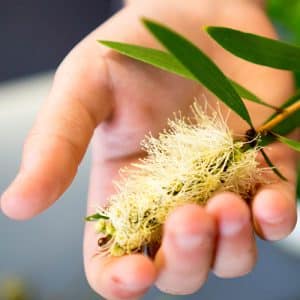
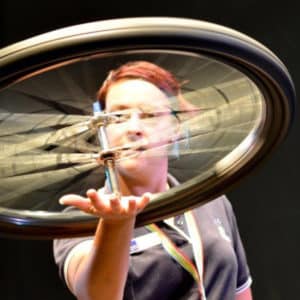




I just wanted to pass on how much the staff and students really enjoyed it and how perfect it was to launch our science week activities. The students were enthralled, educated and entertained – a perfect trifecta!
-Caulfield Grammar School – Big Science Big FunThanks so much for presenting at our school on Monday. Our students enjoyed the show.
-Greenvale Primary School – Big Science Big FunFizzics Education curated a thoughtful and hands-on experience for the children, incorporating practical, skill-based learning activities and followed by a science presentation at the end of the event involving liquid nitrogen. This was delivered safely and effectively, capturing both the children and the parents for the duration of the presentation.
-Macquarie Bank – Family Fun DayFizzics Education ran a show today at our school and it was wonderful. He was a great facilitator and the show was age appropriate and well done.
-Mount Zion Early learning centre – Little Science Big FunI just wanted to pass on how much the staff and students really enjoyed it and how perfect it was to launch our science week activities. The students were enthralled, educated and entertained – a perfect trifecta!
-Caulfield Grammar School – Big Science Big FunThanks so much for presenting at our school on Monday. Our students enjoyed the show.
-Greenvale Primary School – Big Science Big FunFizzics Education curated a thoughtful and hands-on experience for the children, incorporating practical, skill-based learning activities and followed by a science presentation at the end of the event involving liquid nitrogen. This was delivered safely and effectively, capturing both the children and the parents for the duration of the presentation.
-Macquarie Bank – Family Fun DayFizzics Education ran a show today at our school and it was wonderful. He was a great facilitator and the show was age appropriate and well done.
-Mount Zion Early learning centre – Little Science Big Fun